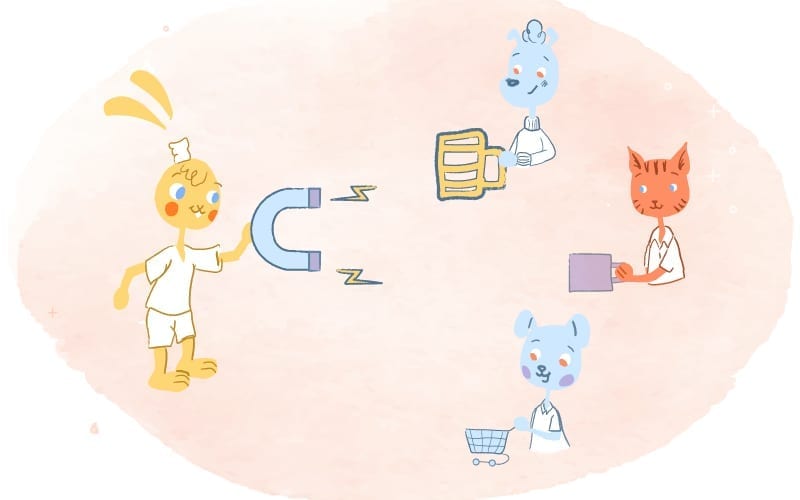Even the most successful people have had their struggles with productivity. If they didn’t, then there wouldn’t be the insurmountable resources available at their disposal. But, whether it’s a book, video, podcast, or article like this one — the quest to produce more in less time goes on forever. Here are 20 one-minute hacks that will boost your productivity.
Here’s the thing though. Boosting your productivity doesn’t have to some grand, life-altering spectacle. In fact, sometimes the most powerful methods are the smallest ones. Case in point? The following 20 hacks that only take around a minute to complete, but will definitely give you that much-needed productivity boost.
1. “What’s one thing I’m committed to doing today?”
When you wake-up in the morning don’t look at your phone. After all, it will make you more stressed out and overwhelmed, as well as more difficult to prioritize tasks. And, it can even make you feel like you’re already behind in your day.
A better idea is to ask one simple question, “What’s one thing I’m committed to doing today?” It’s a simple and effective way to focus and prioritize what’s most important. If you can’t just settle on one item, then consider creating a 1-3-5 to-do list. Here you would simply jot down one large task, three medium-sized tasks, and five small tasks that you want to complete.
2. Make your bed.
“If you make your bed every morning, you will have accomplished the first task of the day,″ retired U.S. Navy Admiral Seal William H. McCraven said in a commencement speech at the University of Texas. “It will give you a small sense of pride, and it will encourage you to do another task, and another, and another.
“And by the end of the day that one task completed will have turned into many tasks completed,” added McCraven. What’s more, research from the National Sleep Foundation has found that making your bed in the morning can lead to better rest at night.
3. Eat cake for breakfast.
“It doesn’t literally have to be cake,” says Beyond the Headline podcast host Jenna Abdou. But, “the point is to find a way to eat something that brings you joy in the morning.” Additionally, Abdou believes that this can also be used as a mindfulness exercise and help you practice gratitude — both of which boost your productivity.
Whatever you have for breakfast, Abdou says, “Savor it without using your phone or thinking about work and responsibilities.” Instead, “Enjoy the moment, and think about all of the things that are going right in your life.”
4. Disable notifications.
According to one study, it was found that when working in front of a computer, the average person gets distracted or interrupted every 40 seconds. That’s just mind0boggling. The easiest solution here would be to just turn off your smartphone or at least disable email, social media, or instant messaging notifications.
You can also set screen time limits on your Android or iPhone. Or, you can block apps or distracting websites at certain times using tools like Offtime, Freedom, Moment, or RescueTime.
5. Adopt positive affirmations.
“We tell ourselves things we want to believe and over time we convince ourselves that they are true,” explains Deanna Ritchie, Editor-in-Chief at Calendar. “If we allow ourselves to repeat self-deprecating thoughts, we will also start to believe these thoughts — even if they aren’t true.” Eventually, “These thoughts weaken our well-being and can lead to loss of motivation, decreased self-worth, and even depression.”
Want to counter this debilitating mindset? Repeat positive self-affirmations. In fact, research shows that these have the power to decrease stress, increase creativity, and improve problem-solving skills.
Deanna suggests that when you aren’t feeling motivated, try out the following four self-affirmations:
- “I Will Make Today a Great Day.”
- “I Have a Lot to Offer.”
- “I Will Never Give Up.”
- “I Am Imperfect, and That’s OKAY.”
6. Say “no” to at least three things.
I do this every Friday when planning out next week. I just scan my to-do-list and calendar. I then identify three commitments that aren’t worth my time. For instance, I could swap out an hour-long virtual meeting with a 15-minute phone call or not RSVPing to an event that I was on the fence about.
7. Abide by the two-minute rule.
Made famous by David Allen in “Getting Things Done,” this is a straightforward concept. If there’s something that takes you under two minutes to do, just do it instead of putting it off.
Moreover, as James Clear explains, you can also use this technique to stop procrastinating and form new habits. Examples would be reading one page of a book at night or tie your running shoes as opposed to proclaiming that you’re going to run 3 miles.
8. Work on Pomodoro time.
Hopefully, you’re aware of this popular time management strategy. If not, it’s where you break your time into 25-minutes of work followed by a 5-minute break. After four Pomodoros, you would take a longer break, like 15-minutes. The reason why this works is that it helps you eliminate burnout and manage distractions.
9. Apply the spider technique.
Another way to fight back against distractions? Try out the spider technique.
“If you hold a vibrating tuning fork next to a spider web, he will come out because he thinks it is a prey,” explains Sabine Staggl. Co-founder of Noisli. “If you repeat this over and over, the spider won’t come out anymore because he has learnt that there will be no prey waiting for him.”
“The same goes for your distractions,” adds Staggl. “You can train yourself and learn to not pay attention to the distractions around you.” And, you can do so by forcing yourself to re-focus, knowing your weaknesses, and avoiding them. For example, if noise is an issue, then you could invest in a pair of noise-canceling headphones.
10. Optimize your life in seconds.
Here’s a common problem when it comes to productivity. We tend to add things to our life. For example, because health plays such an integral role in how productive we are, you might begin an exercise regiment.
What’s the issue here? Well, if you’ve never made much time for physical activity before, then suddenly adding an hour to your day for this activity can be overwhelming. Instead, you make incremental improvements. In this case, you could walk when on the phone, go outside for one-on-one meetings, or invest in a standing desk.
Other suggestions would be learning keyboard shortcuts or avoiding Parkinson’s Law. You may also want to download time tracking software to help you see how you’re spending your time.
11. Try one-moment meditation.
Why should you meditate? Well, science shows that it has the ability to reduce stress, control anxiety, enhance self-awareness, and lengthen attention spans. But, that’s not all. It can also improve sleep, prevent age-related memory loss, and diminish the perception of physical pain.
Best of all? You can meditate anywhere. Seriously. Martin Boroson, Founder of the One Moment Company, states that instead of wasting time when stuck in traffic or waiting in-line, use that moment to find peacefulness and become more present.
12. Learn your ABCs.
As noted over at HBR, the ABC method is a quick and easy way to improve your focus and prevent distractions from interrupting you. First, you need to become aware of what’s distracting you. Next, breathe deeply. And, finally, choose what you want to do next thoughtfully.
13. Clear up your computer and desktop.
“A clean desk or desktop can be like taking a deep breath, allowing you to focus,” says psychologist Pamela Rutledge. On the flip side though, a cluttered one can make you feel anxious. It’s also much harder to locate items when you need them.
And, if you make this a daily habit, it will only take a moment to achieve. For example, throw away any trash that’s on your desktop, return items to their home, remove unnecessary desktop icons, and close tabs when not being used.
14. Eat, drink, and chew gum.
I’m talking about consuming “brain” food like blueberries, fish, and avocados. Staying hydrated and drinking coffee more strategically. And, when do need an energy boost, smell citrus or herbs like rosemary. These have been found to stimulate alertness and improve focus.
And, when all else fails, chew a piece of gum. It’s very simple. But, this can increase the flow of oxygen to parts of the brain in charge of attention.
15. Look at a photograph.
“When I face a tough decision, I look at a picture of myself as a toddler that I carry in my wallet,” said Google Associate Product Marketing Manager Martin Aguinis. “I ask myself, ‘Am I making this younger version of me proud?’”
“Looking back at this picture reminds me that I need to compete with myself to produce more,” adds Aguinis.
If that’s not your cup of tea, then view images of cute animals like puppies. As one study shows, this can improve your focus since it can make us more alert and engaged.
16. Delegate by following the 70 percent rule.
As you know, delegation is a tried and true way to free-up your time. But, what tasks should you hand-over to others?
Don’t spend too much time thinking about this. Instead, follow the 70 percent rule. In a nutshell, this means that if 70 percent of something can be done better by someone else, then delegate the responsibility to them. Like, I know a little bit of coding. But, when it comes to troubleshooting my company’s app, I have more talented developers work on it.
17. Automate recurring tasks.
For all of those tedious and recurring tasks you have, use a tool like IFTTT or Zapier to automate them. One example could be having a recently published WordPress article automatically shared on your social channels.
18. Use dictation.
According to a study from Stanford, speech-to-text is three times faster than writing. So, consider using your voice to add calendar entries or compose messages or to-do-lists.
19. Change-up your work location.
I’m known for working in multiple places throughout the day. Like I might work from my desk in the AM, but then get out of the office and work from a local cafe. Even if you can’t do that, at least experiment with different work stations in your office or home to keep you from falling into a rut.
20. End each day by asking “Did I do my best?”
To me, this reminds me of Ben Franklin’s daily routine. But, this technique has been used by freelance writer Daniel Dowling to replace ambitious and unrealistic goals.
While it may seem vague, it completely transformed his productivity. “Without asking myself if I’d done my best each day, I’d either have wallowed in self-reproach or failed to reflect on my performance at all,” explains Dowling. “Instead, I’d turned self-criticism into a self-improvement habit.”
20 One-Minute Hacks that Will Boost Your Productivity was originally published on Calendar by John Rampton.


